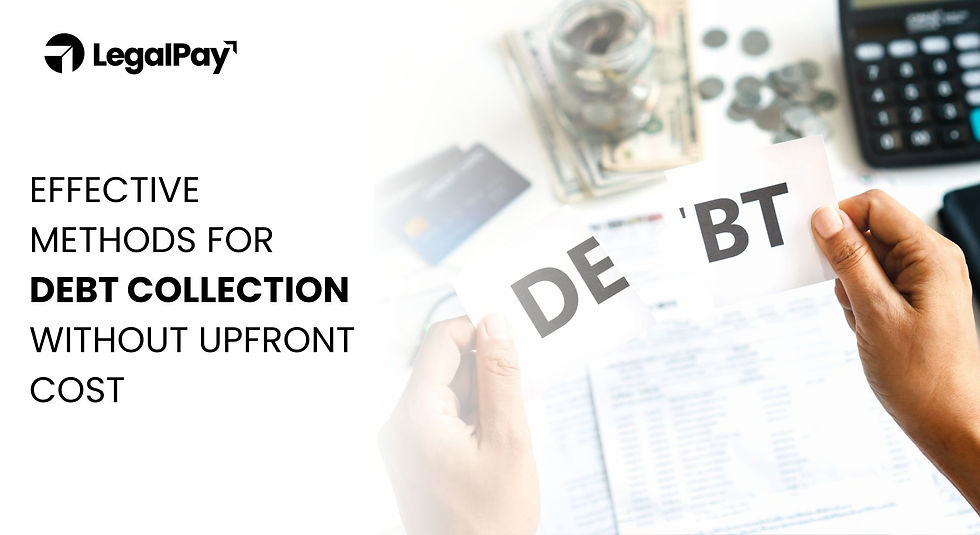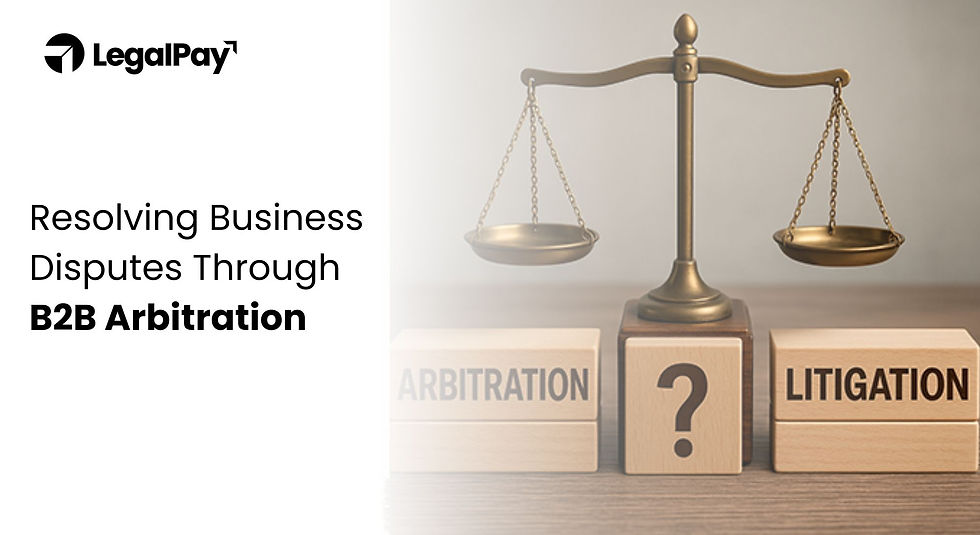How Should You Prepare for a Debt Collection Court Hearing?
- Navneet Singh

- Aug 7, 2024
- 5 min read

Are you facing a debt collection court hearing and unsure about how to prepare effectively?
Navigating legal proceedings can be daunting, but adequate preparation can significantly bolster your chances of presenting your case confidently and securing a favorable outcome. This blog outlines essential steps and strategies to help you prepare thoroughly for a debt collection court hearing, ensuring you are well-equipped to defend your rights.
Understanding the Importance of Preparation
Preparing for a debt collection court hearing is critical as it allows you to present your case comprehensively and address any potential challenges effectively. By gathering relevant documents, understanding legal procedures, and strategizing with legal assistance if possible, you can increase your chances of achieving a favorable resolution.
Steps to Prepare for a Debt Collection Court Hearing
1. Review Your Case File
Begin by thoroughly reviewing all documents related to your debt and the court summons. This includes copies of the original debt agreement, communications with the creditor or collection agency, and any legal notices or court filings. Understanding the details of your case will help you articulate your defense clearly during the hearing.
2. Gather Supporting Documents
Collect all relevant documents that support your defense. This may include payment records, correspondence with the creditor, receipts, and any evidence that disputes the debt amount or its validity. Organize these documents chronologically and label them for easy reference during the hearing.
3. Understand Legal Procedures
Familiarize yourself with the legal procedures and rules governing debt collection court hearings in your jurisdiction. Know what to expect during the hearing, including courtroom etiquette, speaking protocols, and the sequence of events. Understanding these procedures will help you navigate the hearing confidently.
4. Prepare Your Defense Strategy
Develop a clear and concise defense strategy based on the facts of your case and applicable consumer protection laws. If possible, consult with a consumer rights attorney who can provide legal advice, assess the strengths and weaknesses of your case, and help you formulate a persuasive argument. Anticipate potential arguments from the creditor's side and prepare rebuttals accordingly.
5. Attend the Pre-Hearing Conference
If a pre-hearing conference is scheduled, attend it prepared with your documents and a summary of your defense. This conference allows both parties to discuss settlement options, clarify legal issues, and streamline the hearing process. Use this opportunity to negotiate with the creditor or their representative, if appropriate.
6. Prepare Mentally and Emotionally
Debt collection court hearings can be stressful, but maintaining a composed and professional demeanour is crucial. Practice answering potential questions calmly and succinctly. Focus on presenting factual information and avoid emotional responses that could undermine your credibility.
Tips for a Successful Debt Collection Court Hearing
Arrive Early: Arriving early at the courthouse is crucial for several reasons. It allows you ample time to navigate any potential traffic or parking issues, locate the correct courtroom, and familiarize yourself with the courthouse layout. Early arrival also provides an opportunity to review your documents and mentally prepare for the hearing without feeling rushed.
Dress Appropriately: Choosing appropriate attire for your court appearance demonstrates respect for the judicial process and can positively influence how you are perceived by the judge and other parties involved. Opt for conservative, professional attire such as a suit or dress with minimal accessories. Avoid casual clothing, loud patterns, or attire that may distract from the seriousness of the proceedings.
Respect Court Etiquette: Courtroom etiquette is essential to maintain professionalism and uphold the integrity of the legal proceedings. When addressing the judge, use formal language such as "Your Honor" and wait for permission to speak. Avoid interrupting others, including the judge, and refrain from using electronic devices unless permitted. Stand when addressing the court and remain seated when others are speaking.
Bring Copies of Documents: Prepare multiple copies of all relevant documents related to your case, including the original debt agreement, correspondence with the creditor, payment records, and any legal notices or filings. Distribute these copies to the judge, creditor, and any legal representatives present at the hearing. Having extra copies ensures that all parties can follow along and refer to the same documents during discussions.
Take Notes: During the hearing, take detailed notes to record key points, arguments made by both parties, and any instructions or decisions issued by the judge. Note-taking helps you stay focused and organized, enabling you to recall important details when presenting your case or responding to questions. These notes can also serve as a reference for follow-up actions after the hearing concludes.
Maintain Composure and Confidence: Maintaining composure throughout the hearing is essential to presenting yourself as credible and reliable. Speak clearly and confidently when addressing the court, emphasizing factual information and key aspects of your defense. Remain calm and composed, even if faced with challenging questions or arguments from the opposing party. Remember, a confident demeanour can bolster your credibility and strengthen your position in the proceedings.
Follow Instructions and Seek Clarification: Listen attentively to instructions from the judge and follow them promptly. If you do not understand a question or instruction, politely ask for clarification rather than making assumptions. Clear communication and adherence to court procedures demonstrate your respect for the judicial process and contribute to a smooth and efficient hearing.
Conclusion
Preparing for a debt collection court hearing requires thoroughness, organisation, and a clear understanding of your rights and responsibilities. By following these steps and seeking legal guidance if needed, you can navigate the hearing process confidently and advocate effectively for your interests. Remember, adequate preparation not only strengthens your case but also enhances your ability to achieve a fair resolution in the courtroom.
At Legalpay, we understand the challenges of debt collection proceedings and are here to support you with comprehensive legal assistance. Contact us today to learn more about how we can help you prepare for your debt collection court hearing and protect your financial well-being.
Frequently Asked Questions
What should I bring to my debt collection court hearing?
It's essential to bring all relevant documents, including copies of the debt agreement, payment records, correspondence with the creditor, and any evidence supporting your defense. Multiple copies ensure you can share them with the judge, creditor, and any legal representatives present.
Do I need to hire a lawyer for a debt collection court hearing?
While you're not required to hire a lawyer, legal representation can significantly enhance your defense. A consumer rights attorney can provide expert advice, assess your case's strengths and weaknesses, help formulate a defense strategy, and negotiate on your behalf during the hearing.
What should I wear to a debt collection court hearing?
Dress in neat, professional attire to demonstrate respect for the court and proceedings. Opt for business attire, such as a suit or dress, to convey professionalism and seriousness about the matter at hand.
Can I negotiate a settlement before the debt collection court hearing?
Yes, you can negotiate a settlement with the creditor or their representative before the hearing. A pre-hearing conference may be scheduled for this purpose, allowing both parties to discuss settlement options, clarify legal issues, and potentially resolve the matter without proceeding to a full court hearing.
What happens if I win the debt collection court hearing?
If the court rules in your favor, the creditor may be required to cease further collection efforts related to the disputed debt. The court may also dismiss the case or issue a judgment in your favor, specifying the resolution of the debt matter. It's crucial to follow up with the court's instructions and monitor any further communications from the creditor.




Comments